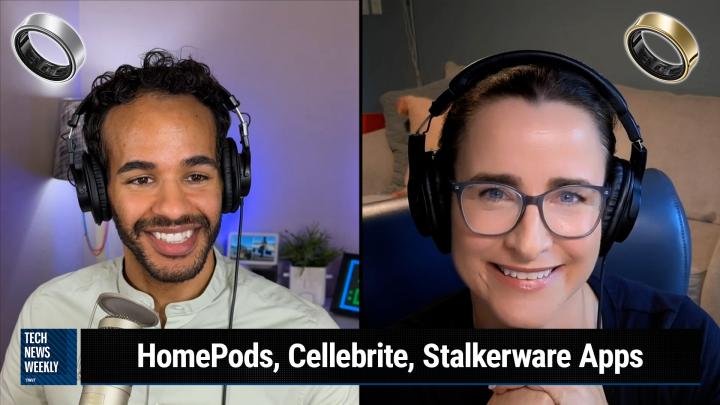Samsung's Newest Wearable: A Dive into the Samsung Galaxy Ring
AI created, human edited.
Samsung has officially entered the smart ring market with its new Galaxy Ring, and CNET's Lexy Savvides joined Mikah Sargent on Tech News Weekly to share her hands-on experience with the device. Priced at $400 and available for pre-order now, the Galaxy Ring is set to ship starting July 24th, though high demand has pushed some deliveries to late August.
Savvides praised the unboxing experience, noting the thoughtful design of the charging case, which features a transparent lid and LED indicators for battery and pairing status. The ring itself comes in three finishes - matte black, silver, and gold - and Savvides found it remarkably comfortable, describing it as so light (just 3 grams) that she often forgot she was wearing it.
In terms of functionality, the Galaxy Ring aims to track health metrics like sleep, heart rate, and activity. Savvides reported impressive accuracy in her testing, with sleep tracking results closely matching those of the more established 8 Sleep system, and heart rate measurements coming within 2 beats per minute of a chest strap monitor.
When compared to its main competitor, the Oura Ring, the Galaxy Ring's primary advantage is its lack of a subscription requirement. While the upfront cost is $100 more than Oura's base price, Samsung's offering provides all features without ongoing fees. Savvides calculated that over two years, Galaxy Ring owners would save about $44 compared to Oura Ring users paying the $6 monthly subscription.
However, the Galaxy Ring does have some limitations. It's only compatible with Android devices, and some features - like the energy score, wellness tips, and gesture controls - are exclusive to Samsung Galaxy smartphones. Battery life is solid, with smaller sizes lasting up to 6 days and larger sizes reaching 7 days on a single charge.
Overall, Savvides seemed impressed with Samsung's entry into the smart ring market, praising its comfort, accuracy, and feature set. While the $400 price tag is steep, the lack of a subscription requirement could make it an attractive option for those looking to invest in long-term health tracking.
Subscribe to Tech News Weekly on your favorite podcast player, and join Club TWiT for even more tech coverage!
